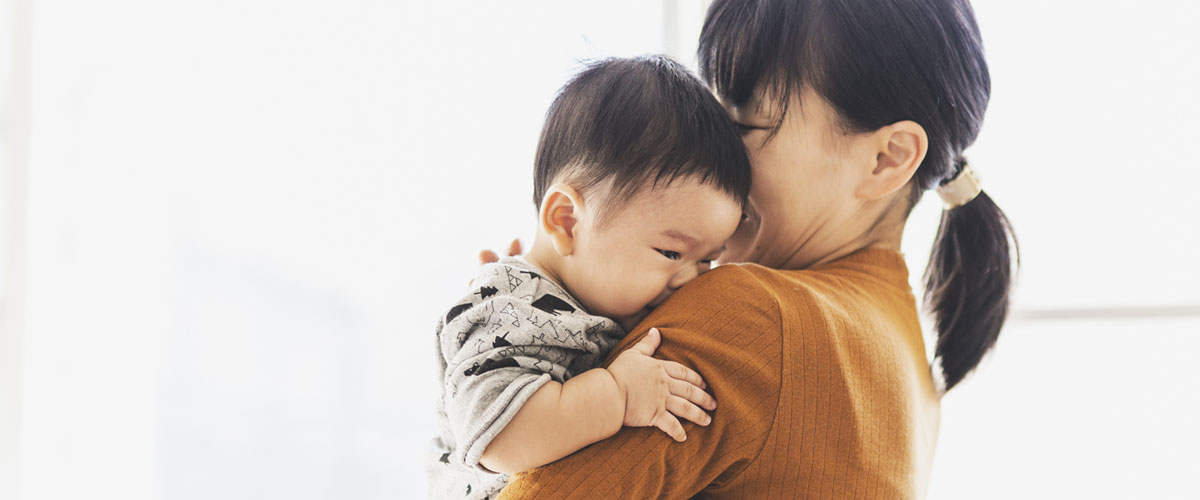Hello!
This month we’ll be talking about teeth, growth spurts, and parenting! |
Appointment alert!
Does your little one still have a gummy smile, or a mouth full of chompers? Health Canada recommends that baby’s first dental visit should be at one year of age or when the first tooth appears. |
Growth spurts
Children go through lots of growth spurts. Some days they may eat a lot, and other days they eat less. This is normal. Continue to offer regular meals and snacks and let your child decide how much to eat of the food you serve. This helps them to recognize and respond to their own hunger and fullness cues. |

|
Parenting
Parenting can be stressful. Research shows that punishments like slapping, spanking or shaming do not work, and they harm your child.
Babies don’t do things to make their parents mad. They do them because they are still learning. Babies can’t understand or remember rules yet. Here are some things you can do to help your baby learn:
- When your baby is doing something you don’t want them to do, redirect them to a different activity (e.g., if your baby is playing with the remote control, give them a toy and move the remote).
- Give your baby choices whenever possible (e.g., would you like the red cup or the blue cup?)
- Show your baby how to work through mistakes. (e.g., “Oh – the juice spilled! Let’s clean it up together”).
- Show your baby you love them, no matter what.
|

|
Coping with stress
Your baby is learning from you all the time. One of the biggest things your baby will learn is how you cope with stress. We are all mad, sad, or frustrated at some time!
In those moments, try these techniques:
- take 3 slow, deep breaths. In through your nose and out through your mouth.
- slowly count to 10 in your head.
- repeat a phrase that calms you, like “this too shall pass” or “I can handle this”.
Tell your child about your feelings – even negative ones- and how you are working through them. Here are some examples:
“I’m feeling upset because I can’t find my keys and we are going to be late. I’m taking some deep breaths to calm down, so I can try to remember where I put them.”
“I’m feeling sad because I had a hard day at work. I’m going to call Aunt Sue and chat with her for a few minutes. That always makes me feel better. I’ll be okay soon.”
This teaches your child how to cope when they are having hard days. |

|
Healthy Smiles Ontario
Dental hygiene clinics
A free program for children 0 to 17 years of age. A dental hygienist will check your child’s teeth, and give you tips and tricks to keep those tiny teeth healthy! These clinics take place in Kingston, Napanee, Sharbot Lake, and Cloyne. Check the schedule on our webpage! |
Have a great month, and we'll talk to you again when your baby turns one! |
KFL&A Public Health, 221 Portsmouth Avenue, Kingston, Ontario K7M 1V5
|
|
|
|
|